Essential Checklist for Choosing the Right Auto Recloser RCCB: Key Industry Metrics to Consider
Table of Contents
- Understanding RCCB: What Is an Auto Recloser and Its Role in Electrical Systems
- Key Industry Metrics for Evaluating Auto Reclosers: A Comprehensive Overview
- Safety Considerations: How RCCBs Protect Against Electrical Faults
- Performance Factors: Assessing the Reliability and Speed of Auto Reclosers
- Critical Features to Look for When Selecting the Right RCCB for Your Needs
- Cost vs. Quality: Balancing Budget and Performance in Auto Recloser Selection
- FAQS
- Conclusion
- Related Posts
In today’s fast-moving electrical market, picking the right Auto Recloser RCCB (that’s Residual Current Circuit Breaker for those who aren’t super familiar) is kind of a big deal. It’s all about ensuring safety and keeping your energy systems running smoothly. According to reports from industry giants like the International Electrotechnical Commission, there’s been a real boost in demand for reliable protective devices—actually, it's growing at about 9% each year up until 2025. That’s pretty significant, and it really highlights how important it is to carefully evaluate key factors like leakage current sensitivity, interrupting capacity, and overall reliability. With over 20 years of experience under our belt, Zhejiang Cejia Electric Co., Ltd. has been leading the way in delivering professional energy storage power solutions that are tailored to what the market actually needs. We’re all about quality, fair prices, and making sure our customers feel confident in their choices—especially when it comes to something as critical as selecting the right Auto Recloser RCCB. We want to help you make smart decisions that boost safety and performance in your electrical setup.
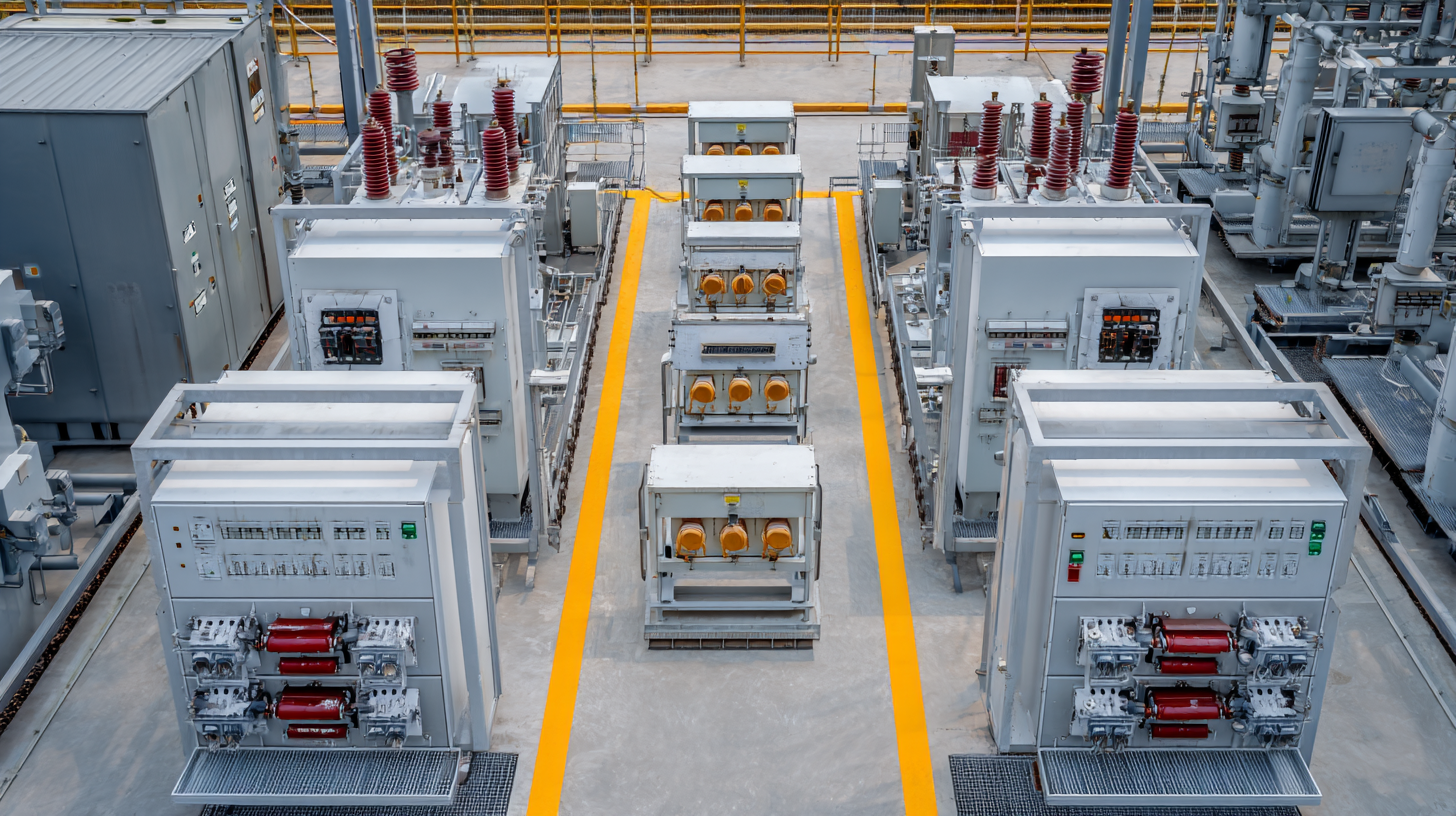
Understanding RCCB: What Is an Auto Recloser and Its Role in Electrical Systems
So, let’s talk about RCCBs, also known as auto reclosers. These little devices are actually pretty important when it comes to keeping our electrical systems safe. Basically, they keep us from getting electrocuted or seeing sparks turn into fires. How do they do that? Well, they watch out for weird current imbalances. If something’s off—like a fault or a leak—they quickly shut off the power to prevent any damage or danger. With the new rule saying that all homes built before 1985 need to have an RCCB installed by July 1, 2023, it’s clear that electrical safety is more of a priority than ever. It shows people are finally waking up to how risky old wiring can be and why modern safety stuff is a must.
At Zhejiang Cejia Electric Co., Ltd., we totally get how essential these devices are—whether it’s homes or businesses. Having been in the game for over 20 years, we’re all about offering dependable energy storage and power solutions. Our goal? To make sure our products not only meet all the latest safety rules but also give folks peace of mind when using their appliances. After all, everyone deserves to feel safe and confident with their electrical systems, right?
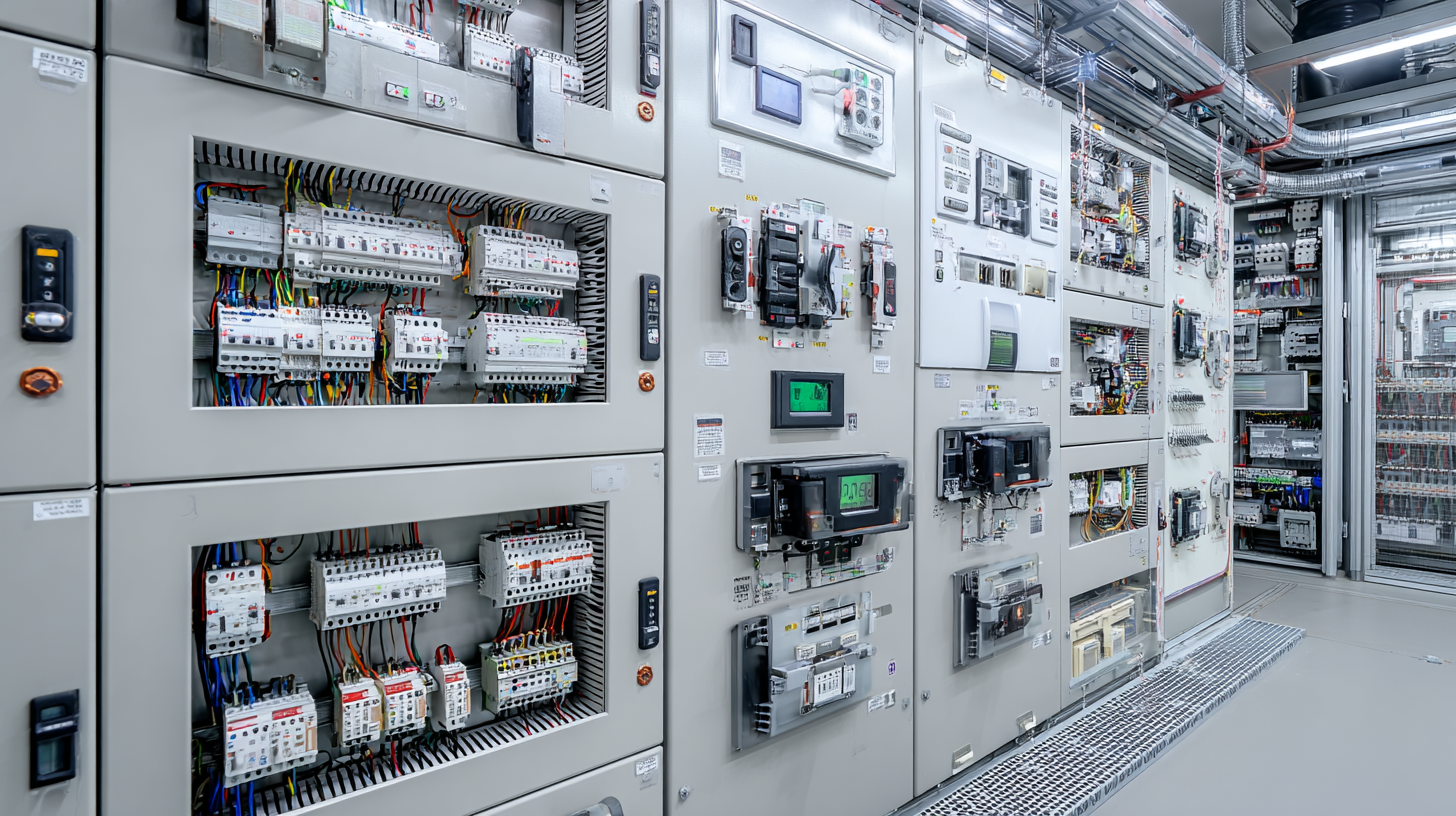
Key Industry Metrics for Evaluating Auto Reclosers: A Comprehensive Overview
When you're picking out the right Auto Recloser RCCB, it's pretty important to look at a few key industry specs to make sure it’s both safe and works well. For starters, check out the rated current capacity — most of these devices fall between 25A and 125A according to IEC standards. Generally, bigger-rated units can handle surges better, giving your circuits a bit more protection. Don't forget about the breaking capacity either, which you'll see in kA (that's kiloamperes). This metric basically shows how much fault current the device can cut off safely. For residential setups, a breaking capacity of at least 10kA is pretty much the standard, as suggested by the NFPA.
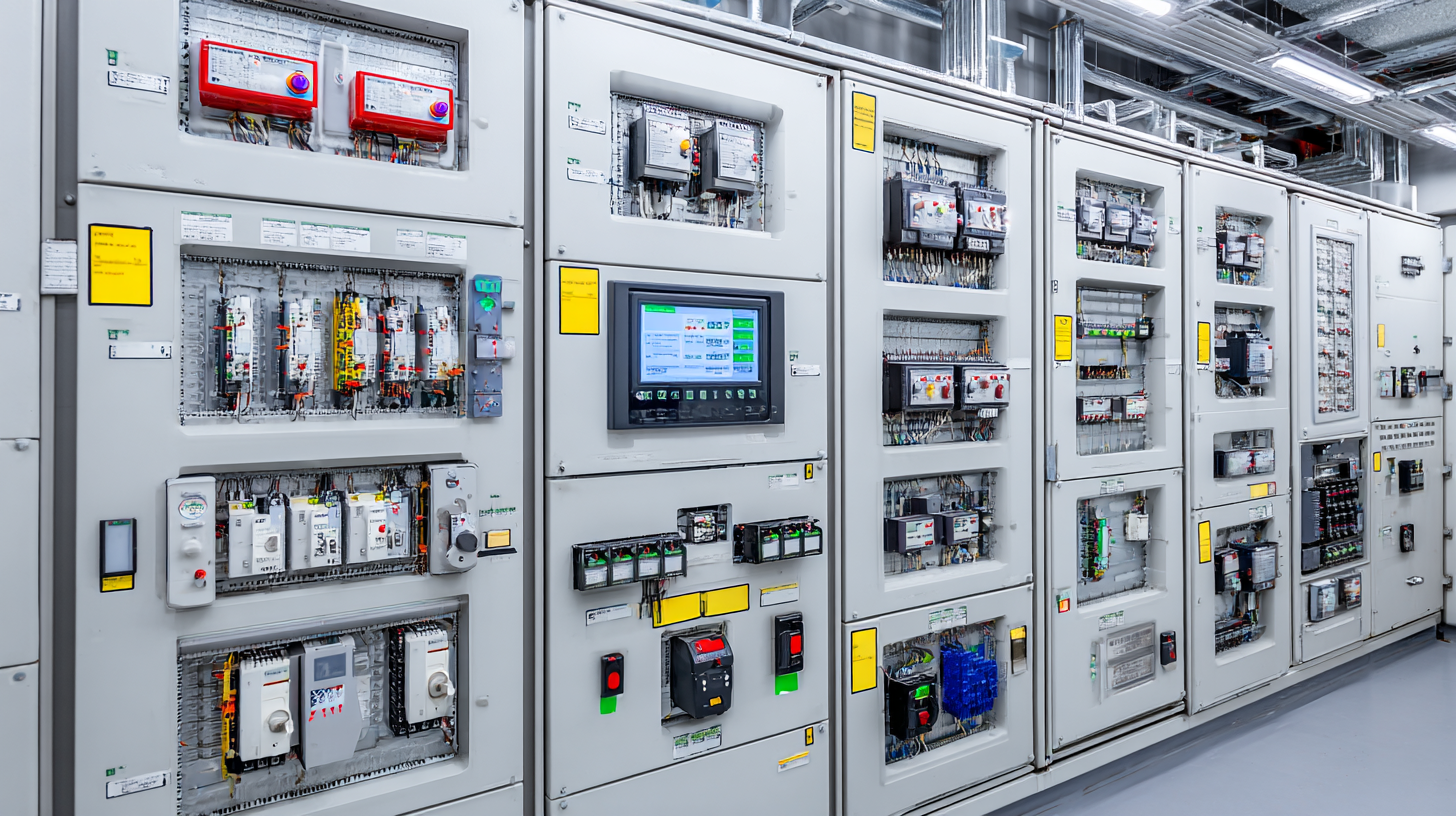
Here’s a quick tip: always double-check that whatever you pick complies with both regional and international standards — it’s a simple way to make sure you're good on safety and performance.
Another thing that really matters is how fast the RCCB trips. Ideally, it should disconnect the circuit within about 30 milliseconds if there's a residual current over 30mA. This quick response is crucial for protecting your wiring and devices. Also, think about how often the device will need to operate, especially if it’s outside — environmental ratings are key to keeping things reliable no matter the weather.
And one last tip: go for models with features like self-testing or LED indicators. They make maintenance a lot easier and let you know at a glance if everything’s working okay.
Safety Considerations: How RCCBs Protect Against Electrical Faults
When it comes to electrical safety, there's no getting around how important Residual Current Circuit Breakers — or RCCBs — really are. I came across a report by the International Electrotechnical Commission (IEC), and it honestly blew my mind: more than 30% of electrical accidents happen because of ground faults. These RCCBs are actually pretty amazing because they can detect even tiny imbalances in electrical current and shut down the power super quickly. That split-second response can make all the difference because, as studies suggest, the longer a shock goes unnoticed, the higher the chances of a fatal electric shock happening.
On top of that, the folks over at the National Fire Protection Association (NFPA) have pointed out that electrical failures are among the top causes of fires — making up nearly a quarter of all fire incidents. So, installing RCCBs into your electrical setup isn’t just a good idea; it’s pretty much essential in reducing those risks. Whether it’s in your home or a commercial building, having the right safety measures in place can really make a difference. And don’t forget, it’s super important for industries to stick to standards like IEC 61008 and IEC 61009, which set the performance benchmarks for RCCBs. Picking the right breaker based on these standards not only boosts safety but also helps keep everything up to code and running smoothly.
Performance Factors: Assessing the Reliability and Speed of Auto Reclosers
Picking the right auto recloser RCCB isn't just about brand names or fancy specs—performance factors like reliability and speed really matter. Think of reliability as the auto recloser's ability to do its job when things go wrong; you want something that consistently kicks in during faults to prevent lengthy outages and keep your system running smoothly. You can get a pretty good idea of how dependable it is by checking things like how well it's designed, what materials are used, and any failure stats available. Plus, a solid testing process—covering different environmental conditions—can really give you confidence that it’s built to handle whatever comes its way, whether it's harsh weather or other tough situations.
Then there's speed—another big deal. How quickly the auto recloser detects a problem and re-energizes the line can be the difference between a quick fix and a big mess. It’s important to pay attention to those response times, especially for short-circuit and ground faults, to make sure it reacts fast enough to stop damage and keep your power flowing without interruption. If you take the time to look into both reliability and speed, you'll be in a better position to pick an RCCB that’s just right for your specific setup and needs.
Performance Metrics of Auto Reclosers (RCCB)
Critical Features to Look for When Selecting the Right RCCB for Your Needs
Picking the right Residual Current Circuit Breaker (RCCB) for your electrical setup isn't something to take lightly. You really want to pay attention to a few key features to make sure everything runs smoothly and safely. For starters, check out the rated residual current—most residential stuff sticks with something like 30mA, but if you’re dealing with industrial levels, you might need something with a higher rating. It's also important to think about where you'll be installing it because different environments call for different sensitivity levels so you don’t get annoying trips all the time.
Another thing to consider is the type of RCCB—whether it’s double pole, three pole, or four pole. The choice here depends on how many circuits you’re protecting. And don’t forget to double-check the voltage rating—make sure it matches up with your system’s specs to avoid any hiccups.
A little tip: It’s always a good idea to chat with a qualified electrician—trust me, they know best when it comes to figuring out the right amperage and trip type for your setup. Also, looking into the durability and warranty of the product can save you headaches down the line. In the end, going for reputable brands tends to give you more peace of mind when it comes to reliable long-term performance.
Cost vs. Quality: Balancing Budget and Performance in Auto Recloser Selection
When it comes to picking the right auto recloser, finding that sweet spot between cost and quality is super important. The market for electronic reclosers is really heating up, and some estimates suggest it could hit over USD 1.4 billion by 2024. That growth is mainly fueled by things like urban development and new tech tricks. So, for utilities, it’s not just about the price tag; they’ve also gotta think about how reliable these devices are because, let’s be honest, they’re pretty critical when it comes to keeping the lights on.
As manufacturers roll out new tech — like fancy vacuum interrupters — utilities need to ask themselves if paying extra upfront is worth the added performance. Luckily, there are cool tools now, like improved testing simulators, that make it easier to check how well these reclosers will perform over time. All in all, making a smart choice isn’t just about fitting the budget — it’s about making sure you meet quality standards and keep everything running smoothly for the long haul.
Essential Checklist for Choosing the Right Auto Recloser RCCB: Key Industry Metrics to Consider
| Parameter | Value | Remarks |
|---|---|---|
| Rated Voltage | 230/400 V | Standard for residential and commercial use |
| Current Rating | 32 A / 63 A | Select based on load |
| Tripping Sensitivity | 30 mA / 100 mA | Choose based on application |
| Number of Poles | 1, 2, 3, or 4 | According to circuit requirements |
| Price Range | $25 - $150 | Depends on features and quality |
| Lifetime | 10,000 operations | Typical for standard models |
| Protection Features | Overload, Short Circuit | Essential for safety |
FAQS
: An RCCB, or Residual Current Circuit Breaker, also known as an auto recloser, safeguards electrical systems by detecting imbalances in electrical currents and disconnecting the power supply to prevent electrical shocks and fire hazards.
This mandate reflects a growing awareness of the risks associated with outdated electrical installations and highlights the importance of modern safety measures to enhance electrical safety.
Key factors include the reliability of the auto recloser, which is influenced by design quality and material durability, as well as the speed of response to faults, which affects the stability of the distribution network.
The response time of an auto recloser, encompassing detection and re-energization after a fault clearance, directly impacts the stability of the distribution network, making it crucial to analyze specific time delay settings.
The electronic recloser market is predicted to exceed USD 1.4 billion by 2024, driven by urbanization and advancements in technology.
Utilities should consider both the financial implications and the performance reliability of auto reclosers, ensuring that any higher upfront costs are justified by improved performance and long-term operational excellence.
Manufacturers are introducing advanced vacuum interrupter designs and enhanced testing simulators that simplify efficiency checks, contributing to better assessments of reclosers' long-term performance.
Reliability ensures that an auto recloser consistently performs during fault conditions, minimizing downtime and maintaining system integrity, which is vital for stable power supply.
A robust testing protocol helps affirm the performance of auto reclosers in various environmental conditions, ensuring their suitability for diverse operational settings.
RCCBs, by disconnecting power when a fault is detected, protect both people and property from electrical hazards, allowing users to operate their appliances with greater confidence.
Conclusion
When it comes to electrical systems, the Auto Recloser RCCB really plays a crucial role in keeping things safe and reliable. If you're trying to get a handle on what an Auto Recloser RCCB actually is and how it works, you're not alone—understanding this is key to figuring out if it’s the right fit for your needs. In this blog, I’ve put together a handy checklist to help you choose the right Auto Recloser RCCB. We’ll go over the main industry points like how reliable it is, how fast it responds, and what features you should be on the lookout for.
Safety is a big deal here, because RCCBs are designed to protect against electrical faults—keeping both your infrastructure and the people around safe. On top of that, finding a good balance between cost and quality is super important—you want something that performs well without breaking the bank. With over 20 years of experience in providing top-notch energy solutions, Zhejiang Cejia Electric Co., Ltd. is dedicated to offering products that meet industry standards and won’t let you down. This way, you can make a smarter, more informed decision when choosing an Auto Recloser RCCB for your setup.
Related Posts
-

7 Essential Tips for Choosing the Best Residual Circuit Breaker for Your Needs
-

Understanding the Distinct Features and Applications of Best MCB RCCB Alternatives for Global Buyers
-

The Ultimate Guide to Choosing the Best Circuit Breaker Enclosures for Your Global Projects
-

Exploring the Advantages of Choosing the Best MCB and MCCB for Global Suppliers
-
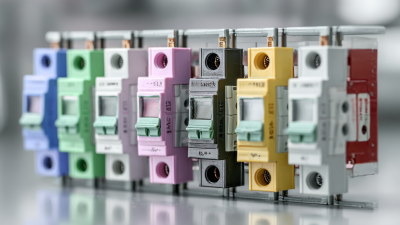
Unlocking Secrets to Source the Best Elcb Breaker Suppliers for Global Buyers
-
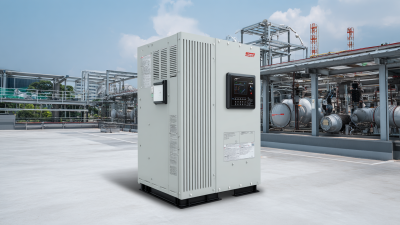
Global Leaders in Manufacturing and Exporting the Best Ac Power Inverter Solutions

